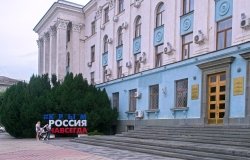#56 Culture, Community, and Class Consciousness in Bolivian Tin Mines
By June Nash
As anthropologists have turned their attention to urban and industrial settings, they are expanding the concept of culture to consider the culture core as a generative base for adapting to, and transforming, reality rather than as a storehouse of beliefs, acts, and understandings inherited and transmitted from one generation to the next. In the analysis of Third World countries undergoing rapid change, traditional customs and social structures provide the basis for resistance to dependency relations fostered in an industrial wage system. Bolivian tin miners are an extreme case of a work force linked to the international market and conscious of their role as producers in the global exchange system at the same time that they identify with aboriginal traditions. It is the thesis of this paper that strong identification with their own cultural roots, reinforced by community solidarity, helps them to overcome the alienation characteristic of an industrial working class. Far from being opposed to militant class consciousness, this enables the tin miners to overcome the opposition of military regimes and coopted populist movements.
Related Program

Latin America Program
The Wilson Center’s prestigious Latin America Program provides non-partisan expertise to a broad community of decision makers in the United States and Latin America on critical policy issues facing the Hemisphere. The Program provides insightful and actionable research for policymakers, private sector leaders, journalists, and public intellectuals in the United States and Latin America. To bridge the gap between scholarship and policy action, it fosters new inquiry, sponsors high-level public and private meetings among multiple stakeholders, and explores policy options to improve outcomes for citizens throughout the Americas. Drawing on the Wilson Center’s strength as the nation’s key non-partisan policy forum, the Program serves as a trusted source of analysis and a vital point of contact between the worlds of scholarship and action. Read more










